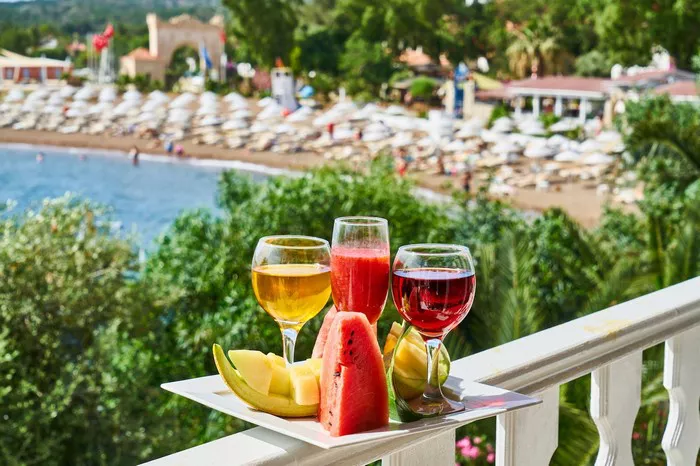Sauvignon Blanc is a popular white wine known for its crisp and refreshing character, making it a favorite choice for wine enthusiasts around the world. If you’re curious about the calorie content and nutritional aspects of Sauvignon Blanc, this article will provide you with the information you need.
1. Calories in Sauvignon Blanc
The calorie content in a bottle of Sauvignon Blanc can vary depending on factors such as alcohol by volume (ABV) and serving size. On average, a standard 5-ounce (150 ml) glass of Sauvignon Blanc contains approximately 120-130 calories. However, it’s important to note that a bottle of Sauvignon Blanc typically contains multiple servings, and the total calorie count will depend on the size of the bottle and the ABV of the wine.
2. ABV and Calorie Count
The alcohol by volume (ABV) of Sauvignon Blanc can vary, but it typically falls in the range of 11% to 13%. Wines with a higher ABV will generally have more calories. As a reference, alcohol contains approximately 7 calories per gram, compared to carbohydrates and proteins, which each contain about 4 calories per gram.
3. Nutritional Content
Sauvignon Blanc is primarily composed of water and alcohol, with minimal nutritional value in terms of vitamins, minerals, or protein. It is a low-sugar wine, which contributes to its dry taste.
4. Health Considerations
While Sauvignon Blanc is a relatively low-calorie alcoholic beverage, it’s important to consume it in moderation. Excessive alcohol consumption can lead to various health concerns, including weight gain and an increased risk of certain health conditions. It’s advisable to enjoy wine as part of a balanced and responsible approach to alcohol consumption.
5. Wine Serving Sizes
Understanding the calorie content of wine also depends on the serving size. Standard wine bottles are typically 750 ml in volume and contain approximately five 5-ounce (150 ml) servings. The calorie count in a bottle of Sauvignon Blanc can range from around 600 to 650 calories, depending on the wine’s ABV.
Conclusion
Sauvignon Blanc is a delightful and refreshing white wine enjoyed for its vibrant flavors and versatility. While it is a relatively low-calorie alcoholic beverage, it’s essential to be mindful of portion sizes and consume wine in moderation as part of a balanced diet. Remember that the calorie content can vary depending on factors like ABV and serving size, so it’s helpful to check the label or consult with a nutrition resource for more precise information on specific brands and bottles.
FAQs related to Sauvignon Blanc:
Q1: How do I find the specific calorie content of a particular bottle of Sauvignon Blanc?
A1: The calorie content of a specific bottle of Sauvignon Blanc can vary based on factors like the wine’s alcohol by volume (ABV) and serving size. To find precise calorie information, you can check the label on the bottle or refer to the winery’s website, as some producers provide nutritional details online.
Q2: Is Sauvignon Blanc a low-calorie wine compared to other types of wine?
A2: Sauvignon Blanc is generally considered a lower-calorie wine compared to some other white and red wine varieties. Its calorie content is similar to that of other dry white wines, such as Chardonnay and Pinot Grigio.
Q3: Are there any health benefits associated with drinking Sauvignon Blanc in moderation?
A3: Some studies suggest that moderate wine consumption may be associated with certain health benefits, primarily due to the presence of antioxidants in wine. However, it’s essential to remember that moderation is key, and excessive alcohol consumption can have adverse health effects.
Q4: Does the sugar content in Sauvignon Blanc affect its calorie count?
A4: Yes, the sugar content in wine can contribute to its calorie count. Sauvignon Blanc is generally considered a dry wine, which means it contains minimal residual sugar. Wines with higher sugar levels, such as sweet dessert wines, typically have more calories.
Q5: Can I reduce the calorie content of my Sauvignon Blanc by diluting it with water or soda water?
A5: Diluting wine with water or soda water can reduce its alcohol content and calorie count per serving. This practice is sometimes called “wine spritzing.” Keep in mind that it will also change the taste and overall experience of the wine.
Q6: How does the alcohol by volume (ABV) of Sauvignon Blanc affect its calories?
A6: The ABV of Sauvignon Blanc directly impacts its calorie content. Wines with higher ABV levels will have more calories per serving because alcohol contains more calories per gram than carbohydrates or proteins.


